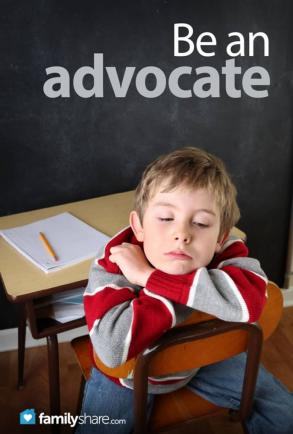
The Americans with Disabilities Actwas passed into law July 26, 1990, as historic civil rights legislation for people with disabilities to promote public access, ensure accommodations, and reduce stigma for people with disabilities.
For the most part, the law has met its mission. However, over 20 years later the stigma and negative stereotypes for those suffering from Attention Deficit Hyperactivity Disorder persist.
These are some of the stereotypes associated with children that have ADHD and ADD.
-
They are lazy and unmotivated.
-
They are inconsiderate with no manners and no regard for others.
-
They need to act nicer if they want friends.
-
Things would get done if they will just focus.
-
They have bad parents.
-
The child needs more discipline and structure.
As a parent, the last one strikes my heart. I am a disability advocate and professional with the unique perspective of being an adoptive mom of children with disabilities. My oldest has ADHD, accompanied with severe anxiety. ADHD and ADD are non-apparent or hidden disabilities. First observing a child or adult, one may not realize the presence of this disability. As a result, misunderstandings frequently occur, and affected children are regularly judged negatively.
Many parents tell me, "Maybe my child has ADHD, but I'm not sure I want a diagnosis. I don't want my child to be labeled."�
Sadly, whether there is a diagnosis or not, judgments are already being made. Stigmas and stereotypes are being associated with the child, even if said stereotypes are totally incorrect.
For example, many of the hardest working people I know have ADHD. Most recently, my child said, "Mommy, I need to keep working and working until I get it. I can't give up." He is very concerned about the feelings of others. He doesn't always know how to regulate his emotions. He is painfully aware he doesn't have a best friend at school.
Unfortunately, this stigma has an impact on a child's self-esteem and increases isolation. Others may choose not to associate with the family and child with ADHD. With early treatment and intervention, there is less negative impact on a child's self-esteem.
If you find yourself struggling to overcome the stigma of ADHD, or if your child is struggling, here are some tips to help you.
Get informed
-
There is a biological component to ADHD.
-
The part of the brain that controls executive functioning is impaired.
-
Children are impulsive, blurt out answers, talk excessively, may hit others, and have trouble with time management, starting and completing tasks.
Be an advocate
-
You don't have to disclose a disability in order to help others recognize that comments and behavior are disrespectful and isolating.
-
Compassionately correct bad stereotypes. Be an example.
-
Be willing to talk about ADHD. Share your experience. Help dispel myths.
-
You must be the advocate for your child. He may have difficulty negotiating peer relationships, and he will need assistance at school. You need to be his voice until he is able to be his own. For example, you may need to help a teacher understand how to teach your child with requests like, "My child has difficulty turning in assignments. He'll need a little reminder."
-
Empower your child in ways to advocate for himself, and help him understand his strengths and limitations. For example, he may need to say to his teacher, "I get grumpy when I haven't eaten. Will you remind me to check my backpack for a snack?"
Associate with others
-
Seek out other people facing the same problems. I found a playgroup that meets monthly. We share community resources, discuss schools and treatment. It's reassuring that when my child is struggling the other moms understand.
-
Join the national association and local chapters of CHADD (Children and Adults with Attention Deficit Hyperactivity Disorder) For example, our local chapter offers support groups, parenting classes, and treatment information.
With added awareness and support, people who live with ADHD can learn to enjoy a fulfilling and happy life.

